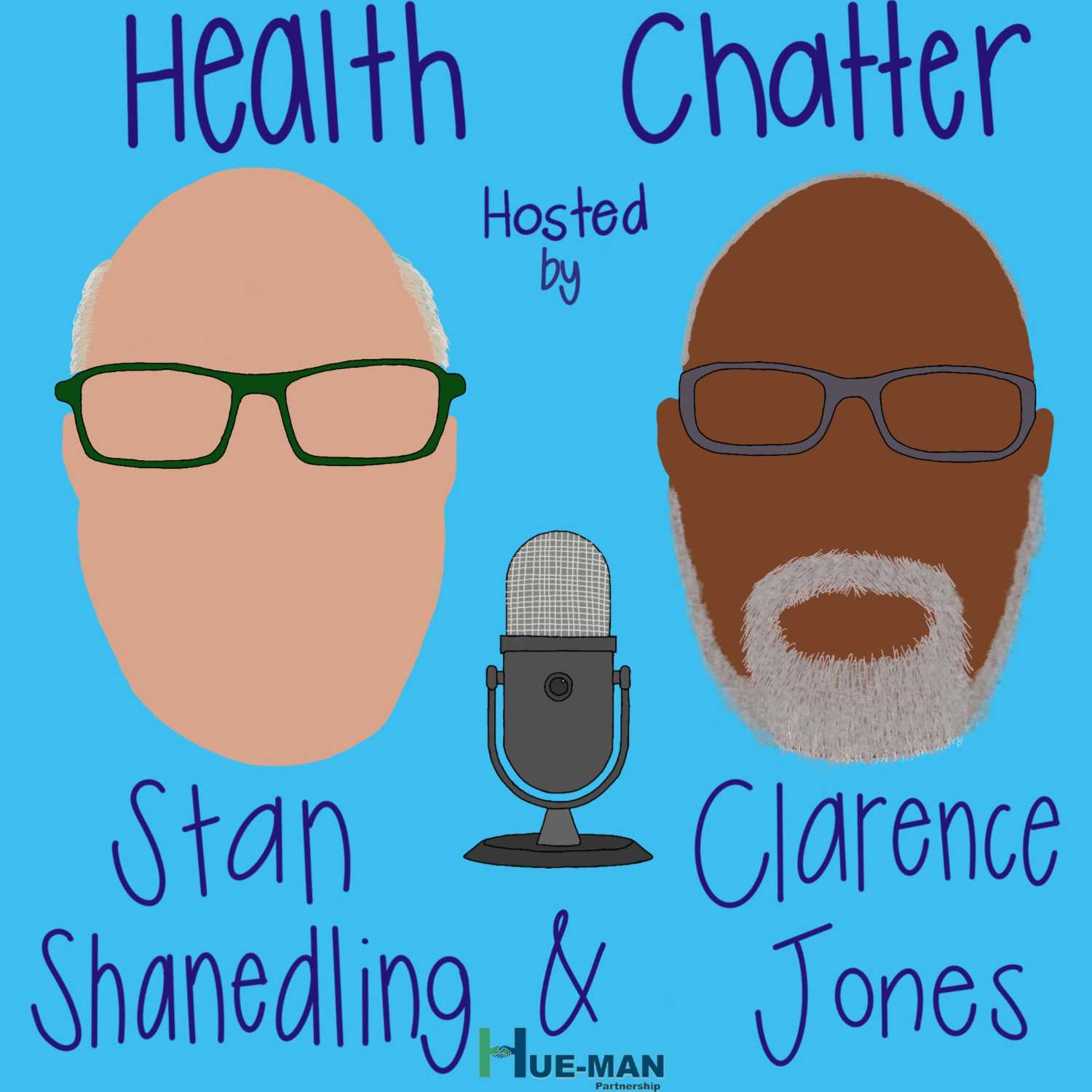Trust

Stan and Clarence chat about trust, confidence in our healthcare system, and trust as a social determinant of health.
What does it mean to trust the health care system? How do you trust your physician? How have covid and politics shaped trust, or mistrust, in our healthcare system? Listen along as Stan and Clarence tackle these great questions while discussing the importance of trust.
Join the conversation at healthchatterpodcast.com
Brought to you in support of Hue-MAN, who is Creating Healthy Communities through Innovative Partnerships.More about their work can be found at http://huemanpartnership.org/
Research
Definitions: from Merriam-Webster
Trust
As a noun: an assured reliance on the character, ability, strength, or truth of someone or something; one in which confidence is placed
As a verb: to rely on truthfulness or accuracy of; to place confidence in or rely on; to hope or expect confidently
Confidence - a feeling or consciousness of one's powers or of reliance on one’s circumstances; faith or belief that one will act in the right, proper, or effective way; a relation of trust or intimacy; reliance on another’s discretion
Trust and confidence in healthcare/trust as a social determinant of health
- How much trust a patient places in the healthcare system is a significant determinant of good health behavior in both individual and public healthcare decisions
- relationships between patients, clinicians, and healthcare organizations must be grounded in trust, as trust impacts key health behaviors and outcomes, such as vaccine acceptance, treatment adherence, and patient satisfaction
- People who mistrust the healthcare system put their health and lives at risk because they are less likely to visit a physician, less forthcoming in conversations with clinicians, and less likely to comply with medical advice and prescriptions.
The 2022 Edelman Trust Barometer:
- Overall finding: The increasing politicization of public health is undermining trust in healthcare systems across the globe. This has led to persistent inequalities of access and outcomes, fueled by a widespread infodemic
- Specific Findings:
- There is a steep 5-year decline in confidence to make informed health decisions
- Trust is a top determinant of good health behaviors
- Of those who have lower trust in the health ecosystem, only 61% are fully vaccinated vs. 82% of respondents who have higher levels of trust
- those with lower trust in the health ecosystem are less likely to engage in preventive care (e.g. have had routine check-ups in the last year) than those with higher trust (47% vs. 66%, respectively).
- 52% percent of respondents say the pandemic has decreased their confidence that the healthcare system is well-equipped to handle major health crises
- 55% percent worry medical science is becoming politicized or being used to support a specific political agenda.
- Solutions to overcoming trust barrier: Coming through a global pandemic with less trust in the healthcare system, inequitable access to quality information and affordable care, and the medical science we rely on being politicized, it is crucial to restore trust and rebuild confidence in health.
- Where there is less trust, use local voices; elevate and amplify expert voices for those with higher trust
- When trust in government lags, other institutions must play a larger role to build confidence in evolving public health measures.
Sources:



